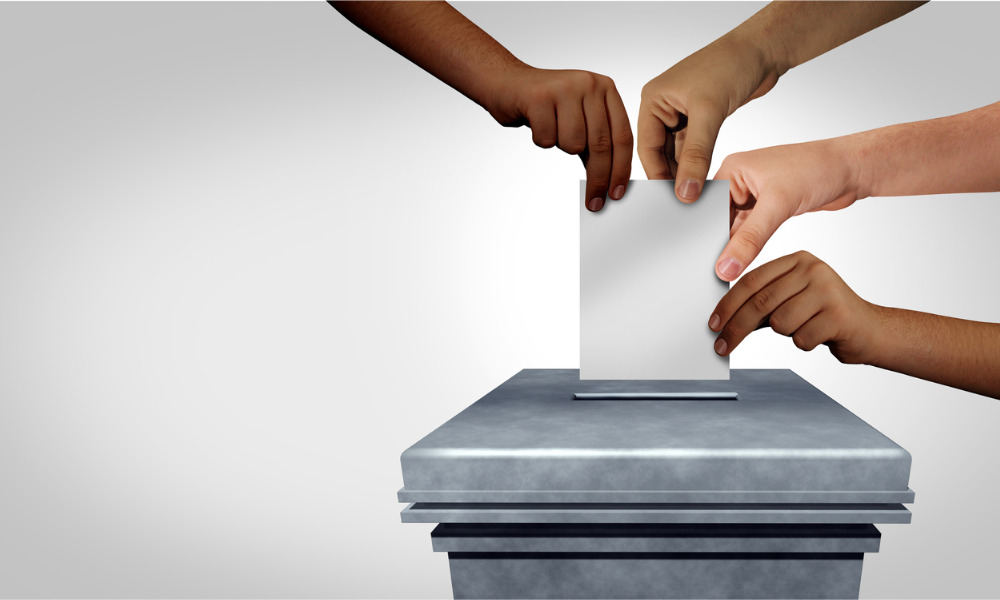Canada to appeal striking of regulations allowing First Nations to postpone elections, extend terms

The Minister of Indigenous Services has announced an intention to appeal the Federal Court’s decision to invalidate as ultra vires s. 4, covering custom election codes, of the First Nations Election Cancellation and Postponement Regulations (Prevention of Diseases), SOR/2020-84.
The federal government recognized the health risks of conducting elections amid the COVID-19 pandemic, particularly in at-risk and underserved Indigenous communities and in parts of the country dealing with the pandemic’s third wave and highly contagious variants. It confirmed that the health and safety of all Canadians, including First Nations, Inuit and Métis, continues to be a top priority, said the news release of Indigenous Services Canada dated Apr. 8.
“We want to ensure that communities continue to have the necessary resources and tools available to them to manage the ongoing public health situation in a way that prioritizes the well-being of their communities,” said the statement from Marc Miller, federal Indigenous services minister. This context has led the federal government to decide to appeal the decision in Bertrand v. Acho Dene Koe First Nation, 2021 FC 287.
Indigenous Services Canada developed the regulations in April 2020 after it heard from First Nation leaders who aired their grave issues. The regulations seek to offer a mechanism authorizing First Nation councils to postpone their elections or to extend the terms of office of chiefs and councillors while preventing a critical governance gap.
The federal regulations aim to manage the immediate public health risks posed to communities by conducting elections amid the pandemic and avoiding, minimizing or controlling the transmission of diseases like COVID-19 at public gatherings like elections.
From Apr. 8, 2020, to Mar. 22 this year, 116 First Nations made use of the regulations to postpone elections, with 36 of them ordinarily conducting elections under the Indian Act, 15 under the First Nations Elections Act and 65 under a community or custom process.
Acho Dene Koe First Nation utilized the regulations to postpone its elections two times and extended its council’s term of office by around one year in total. Acho Dene Koe submitted that the postponement and extension were likewise authorized by its customary law, independently of the federal regulations.
The applicant, a member of Acho Dene Koe, supported by the Band Members’ Alliance and Advocacy Association of Canada as an intervener, questioned the validity of the federal regulations and Acho Dene Koe’s decision to postpone the election.
On Apr. 1, the Federal Court ruled that Acho Dene Koe First Nation’s council did not have the power to extend its term of office. The court ruled that s. 4 of the federal regulations is invalid for not being authorized by the Indian Act, when considered in its totality, and suspended the declaration of invalidity for 60 days following the date of judgment.
The Federal Court agreed with the applicant that s. 73(1)(f) of the Indian Act, which authorizes the governor in council to make regulations preventing, mitigating and controlling the spread of diseases on reserves, does not extend to the regulation of elections held under Indigenous law. The court found that the First Nation’s customary law requires elections to be held every three years and does not give the council the authority to extend its term of office.
The decision also called attention to how the Indian Act separates governance matters, including elections and land management issues, with s. 73(1)(f) conferring a power relating to land management.
In the case, Canada’s attorney general invoked specific policy considerations, including the pandemic’s unprecedented nature and the government’s measures to safeguard public health.
The court acknowledged that these were serious policy considerations but found that they were irrelevant to the sole issue of whether the power to make the regulations flowed from the Indian Act and found that such considerations were not part of the framework for determining whether the regulations were ultra vires. The elected branches of government, not judges, have the role of striking a balance between competing policy considerations, the court said.










